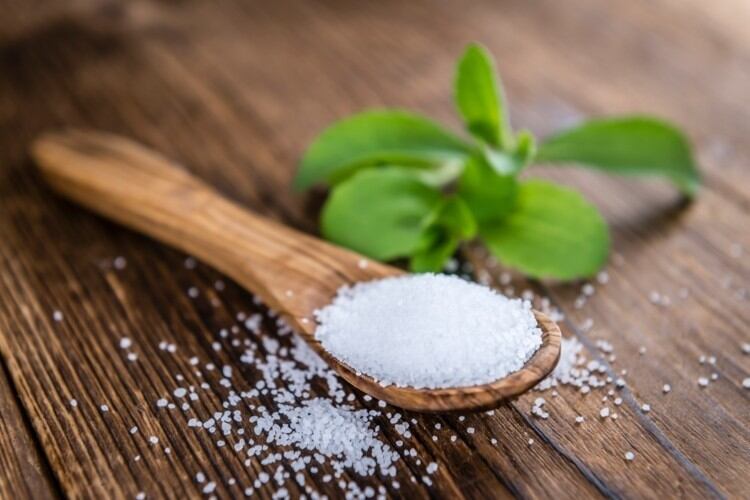Tate & Lyle began working with SGF back in 2017 when the UK-based ingredient supplier became the exclusive global distributor for SGF’s portfolio of stevia-based ingredients and solutions. The following year, Tate & Lyle acquired a 15% equity holding in SGF.
The acquisition of the outstanding shares in SGF, announced this morning, provides Tate & Lyle with a fully integrated stevia supply chain, including leaf sourcing, varietal development, established agricultural programmes and ‘cost-efficient manufacturing’.
“Three years of partnership with SGF, with its fully integrated supply chain, have yielded new supplier relationships and good learnings around managing the stevia supply chain in China, as well as sharing knowledge on manufacturing, leaf innovation and breeding. Through this acquisition, we are simplifying our relationship with SGF and suppliers, while gaining full control of our value chain,” Tate & Lyle’s Global Sweeteners Lead Abigail Storms told FoodNavigator.
Financial details of the transaction were not disclosed but SGF revenue for the year ending 31 December 2020 is expected to be around US$50 million, including revenue for products Tate & Lyle currently sells as distribution agent.
‘More opportunities’ to innovate
The company said it strengthens Tate & Lyle’s position as a ‘leading provider’ of ‘innovative sweetener solutions’.
By combining the two businesses, Storms explained Tate & Lyle hopes to leverage R&D synergies that will step up stevia innovation.
“The synergies that come from taking our relationship to the next level include creating more opportunities to innovate with customers leveraging SGF’s deep technical stevia expertise from leaf to product and our leading sweetener portfolio and cross functional capabilities,” she said. “Bringing SGF’s stevia expertise into Tate & Lyle’s sweetener platform, and alongside our other Food & Beverage Solutions platforms, means more integrated new product development (NPD) and cross-platform solutions that we look forward to creating with our customers, to deliver on consumers’ demands.”
In addition, Tate & Lyle gains ownership of stevia blends that are protected by SGF’s intellectual property rights. “We will also be better positioned to partner with customers across regions and categories, by leveraging proprietary stevia blends and access to rare rebaudiosides from leaf, for example.”
She revealed that Tate & Lyle will continue to invest in stevia innovation, but did not provide details of whether this spend would increase from current levels.
“Tate & Lyle has invested significantly in stevia R&D over recent years, both in partnership with SGF, as well as through the development and recent launches of our bio-converted TASTEVA M. We view stevia as a key part of our sweetener portfolio offering significant potential, and we will continue to invest to grow the business, bringing new technologies to bear and expanding capacity to meet high and growing customer demand,” the Sweeteners Lead revealed.
“Tate & Lyle and SGF have a highly complementary approach to innovation, and with our global customer reach and applications know-how, we are working to unlock stevia’s potential and develop more better-tasting food and beverages with less sugar and calories, supporting healthier living in society.”
Reformulation focus: Natural, clean label sugar reduction
Sugar and calorie reduction are important elements of Tate & Lyle’s ‘Improving Lives for Generations’ strategy. The company hopes to leverage the sugar reduction drive seen across multiple markets to support future growth.
Storms elaborated: “Sugar reduction is a major trend in most countries and this is only going to grow over time. Consumer demand for reduced sugar and calorie food and beverages, increased front-of-pack nutrition labelling and warnings, sugar taxes and unilateral pledges by companies to reduce their products’ sugar content are collectively driving the need for more innovative sugar reduction solutions.”
Importantly, Storms suggested, stevia provides food makers with an ingredient that is perceived as natural by consumers, meeting clean label demand.
“Consumers today want healthier food and drink, with less sugar and calories, reformulated using ingredients that can be found in nature with understandable names that allow them to be identified easily on the ingredients list – stevia ticks all of these boxes. With a market valued at between US$300-350m and growing at between 10–13% annually, there’s no doubt that stevia as a sugar-replacement tool is fast becoming a formulator and consumer favourite.”
For this reason, she believes stevia will play an important role in future food industry product innovation and renovation. “Stevia as a sugar-reduction tool has huge potential to deliver the next generation, healthier products that consumers want and need.”

